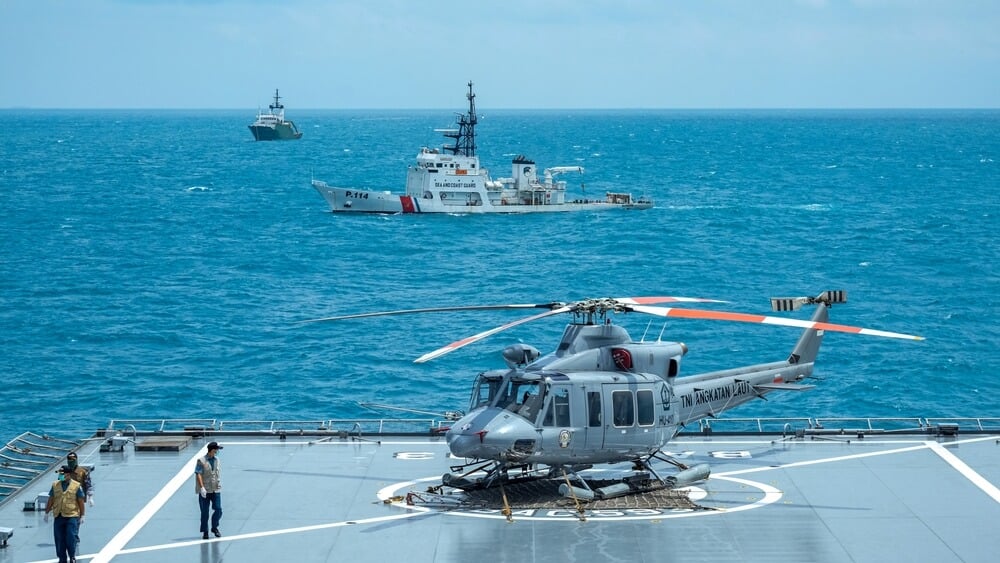Indonesia's formal entry into BRICS, recently announced by Brazil as this year's chair of the emerging economies bloc, is an important step for the loose organisation to profile its identity.
Indonesia's admission came as something of a surprise, as it was announced last year that the bloc would not be expanded following the inclusion of Ethiopia, the UAE, Egypt, and Iran in early 2024.
However, the entry of Indonesia shows that BRICS have overcome doubts about their further expansion and have realised that the accession of Southeast Asia's most populous country and the region's largest economy is more important than the dilemma of the extent to which the accession of new members would weaken internal cohesion.
Prabowo Subianto's victory in the February 2024 presidential elections, when the country has taken a more pronounced nationalist course, as well as changes in foreign policy priorities, decisively supported Indonesia's accession to BRICS.
When President Prabowo took office, he inherited his predecessor Joko Widodo's request to join the BRICS but not his reservations, about which he wanted a broader debate in Indonesia.
During the BRICS summit in Kazan, Russia, last October, President Prabowo explicitly asked to join the organisation, just days after officially taking office, following a transition period.
Interest of BRICS
With Brazil's announcement last week that Indonesia has become a full member of BRICS, the organisation has shown that it did not want to miss out on the opportunity that came with Prabowo.
By admitting Indonesia, BRICS have gained an important regional player from one of the world's most economically dynamic regions, a country with strong political and economic ambitions outside Southeast Asia.
China has every reason to be satisfied with Indonesia's integration into BRICS
As by far the most influential country in the grouping, China has every reason to be satisfied with Indonesia's integration into BRICS.
China is Indonesia's largest trading partner, accounting for nearly 130 billion USD in exchange in 2023, twice as much as Indonesia's trade with the United States. China's operations in Indonesia, particularly in the rapidly expanding infrastructure sector, are significant. This includes the financing of the high-speed railway between Jakarta and Bandung, a project valued at approximately 7.5 billion USD, in which Japan also expressed interest.
In this respect, Indonesia is vital for Beijing's promotion of the Belt and Road Initiative (BRI), which is on the decline worldwide.
Beijing's interest in Indonesia's inclusion in BRICS is primarily based on the desire to bind such an important regional power to itself instead of letting it be influenced by Western partners, particularly the US and Japan, even in a loose alliance like BRICS.
Security tensions
At the same time, Beijing's expectations must also be focused on easing the security tensions, which are significant with Indonesia. Although the leadership in Jakarta has claimed for decades that there were no territorial disputes with China, the reality, particularly during Xi Jinping's term of office, is that China poses a de facto security threat to Indonesia.
The military background of Indonesia's new president, who was also a defence minister and previously commander of special military forces, suggests that strengthening Indonesia's security capabilities will be a key priority during his term.
Especially on the coast of the South China Sea, where Prabowo established air and naval bases as Minister of Defence.
Indonesia's motives for joining BRICS appear to differ from the expectations of the organisation's founders and China in particular
In this respect, Indonesia's motives for joining BRICS appear to differ from the expectations of the organisation's founders and China in particular.
"It does not mean that we are joining a certain camp, but we actively participate in all forums," said Indonesian Foreign Minister Sugiono, explaining his country's intention to join the bloc before BRICS.
The logic of the new Indonesian president may be similar to Beijing's, suggesting that it is easier to realise its interests through an alliance with a competitor, such as BRICS, rather than engaging in open confrontation.
Jakarta's partnership with the West
Indonesia's motives certainly do not lie in sharing the strongly anti-Western platform of China and Russia in particular, but in its desire to realise its ambitious economic plans with as little risk as possible.
President Prabowo has set a target of raising the annual economic growth to 8%, which would make Indonesia the fastest-growing economy in the world. This goal relates primarily to major infrastructure projects where partnership with other BRICS countries, especially China, should be of paramount importance.
 President Prabowo's rule will be characterised by the primacy of security over economy - Indonesian Navy
President Prabowo's rule will be characterised by the primacy of security over economy - Indonesian Navy
On the other hand, President Prabowo's rule will undoubtedly be characterised by the primacy of security over economy, which means that Jakarta will maintain strong relations with its Western partners and Japan as the main counterbalance to China's security dominance in the region.
“Joining BRICS as a partner shows Indonesia’s aims under Prabowo to be a more active participant in international forums while remaining independent. But the main aim is primarily in seeking development opportunities, rather than endorsing Russia’s or China’s views on the world order,” wrote Klaus Heinrich Raditio from Driyarkara School of Philosophy in Jakarta.